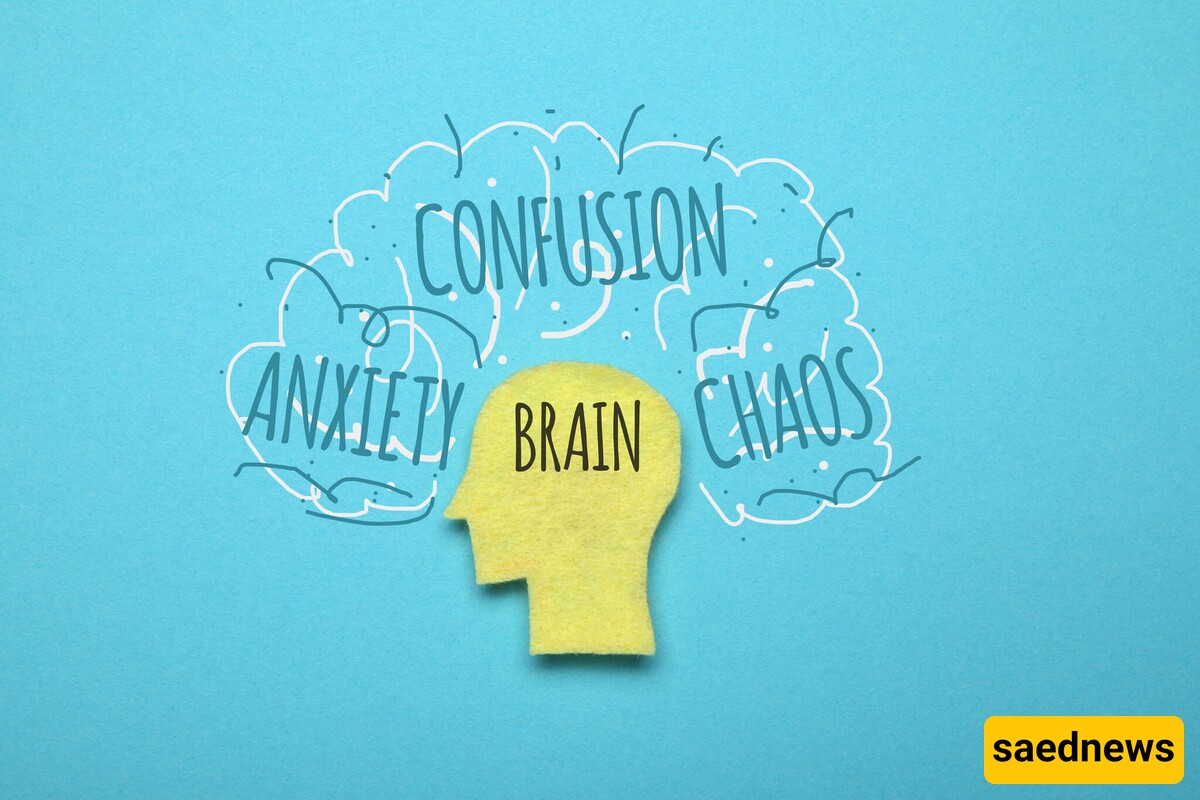SAEDNEWS: Anxiety disorders are widespread yet often overlooked. Identifying the symptoms early can lead to timely care, helping individuals reclaim their peace of mind and well-being.

Reporting from SAEDNEWS, anxiety disorders go beyond occasional worry, and they are persistent and overwhelming feelings of fear that disrupt daily life. From generalized anxiety to panic attacks and phobias, these conditions affect millions worldwide. Early recognition of symptoms can pave the way for effective management.
1. Emotional Indicators
Anxiety often presents as excessive worry or fear that feels uncontrollable. Common emotional symptoms include restlessness, irritability, and a lingering sense of unease.
2. Physical Manifestations
Physical symptoms can be intense and include:
Racing heartbeat
Sweating or chills
Muscle tension
Chronic fatigue
Stomach upset or nausea
These signs can sometimes mimic other health conditions, such as heart problems, causing additional stress.
3. Cognitive Effects
People with anxiety frequently struggle with focus and decision-making. They may experience racing thoughts, persistent doubts, or difficulty concentrating, which can interfere with work, school, or relationships.

1. Generalized Anxiety Disorder (GAD)
This involves constant, excessive worry about everyday matters, such as work, health, or family, often accompanied by physical tension and fatigue.
2. Social Anxiety Disorder
Social anxiety is characterized by extreme fear of social interactions, leading to avoidance behaviors and intense self-consciousness.
3. Panic Disorder
Panic disorder causes sudden, unprovoked episodes of intense fear, often accompanied by physical symptoms like chest pain, dizziness, or difficulty breathing.
4. Specific Phobias
Phobias are irrational fears of specific objects or situations, such as heights or spiders, which can disrupt daily routines.
5. Obsessive-Compulsive Disorder (OCD)
OCD involves recurring, intrusive thoughts (obsessions) and repetitive behaviors (compulsions) aimed at easing distress.
6. Post-Traumatic Stress Disorder (PTSD)
PTSD develops after trauma, with symptoms like flashbacks, heightened anxiety, and avoidance of reminders of the event.
1. Genetic and Biological Influences
A family history of anxiety or imbalances in brain chemicals can increase susceptibility to anxiety disorders.
2. Stressful Experiences
Life challenges such as trauma, abuse, or chronic stress are significant contributors. Financial or job-related pressures can also act as triggers.
3. Personality Traits
Perfectionism, sensitivity, or overthinking tendencies can heighten vulnerability to anxiety disorders.
4. Lifestyle Habits
Lack of sleep, excessive caffeine, or substance use can worsen anxiety symptoms. Poor stress management exacerbates the problem.
1. Personal Life
Anxiety can lead to strained relationships and isolation as individuals withdraw to avoid overwhelming situations.
2. Workplace Challenges
Those with anxiety may experience reduced productivity, missed deadlines, or fear of criticism, impacting their careers.
3. Physical Health Risks
Chronic anxiety is linked to health issues such as high blood pressure, digestive problems, and a weakened immune system.
Seeking professional help is essential when anxiety disrupts daily activities or causes distress for prolonged periods. Warning signs include:
Persistent anxiety lasting over six months
Avoidance of work or social responsibilities
Frequent panic attacks
Unexplained physical symptoms
1. Therapy
Cognitive Behavioral Therapy (CBT) helps individuals identify and reframe negative thinking patterns, offering effective tools to manage anxiety.
2. Medications
Doctors may prescribe anti-anxiety medications or antidepressants for severe cases, often in combination with therapy.
3. Lifestyle Adjustments
Incorporating exercise, adequate sleep, and mindfulness practices can significantly reduce anxiety symptoms.
4. Support Systems
Talking to trusted friends or joining support groups provides reassurance and practical advice for coping with anxiety.

Understanding and identifying anxiety disorders is crucial for effective treatment. With the right support, therapies, and lifestyle changes, individuals can regain control and lead fulfilling lives. Reach out to a healthcare professional to start the journey toward healing if you or someone you know is struggling.

